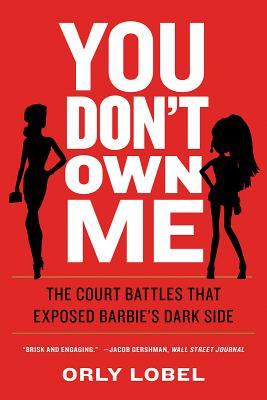What do you think?
Rate this book


304 pages, Paperback
Published April 23, 2019
You don’t own me: how Mattel v. MGA Entertainment exposed Barbie’s dark side by law professor Orly Lobel is a wonderful read! Her research is rich and varied and the writing style while brisk never scrimps on any of the steps in the long (oh, so long) battle between Barbie and the Bratz. For a law geek and true crime fan like me this excellent work was like candy! In the process of telling a great story Lobel takes full advantage of the opportunity to speculate on the sad state of intellectual property law in the 21st century. She really understands – and successfully conveys to her readers - the struggles of innovators and of industry to respond to the many practical changes in technology, production and consumer expectations. At the same time she never fails to call out both Mattel and, to a lesser extent, MGA on their shortcomings.
This book is about the case and it is fascinating but it is also about what is wrong with IP and that she covers exceptionally well. She writes:
“Intellectual property is the workhorse of twenty-first century markets. Legal protections for knowledge and creativity were originally developed to add, as [President] Lincoln hoped, the fuel of interest to the fire of genius. But intellectual property protection has far expanded beyond its original goals. Today, every company that reaches the top is tempted to use the law in ways that block competition. Creative ventures, too often and too quickly, lock themselves in vexatious legal battles that assure nothing but their mutual destruction.”